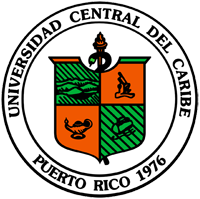787-798-3001
info@uccaribe.edu
Mission
To educate highly qualified, caring and committed Doctors of Chiropractic (D.C.) to serve as primary wellness healthcare providers and promoters of evidence-based integrative practices.
Vision:
UCCSC will be recognized as the gold standard institution for interprofessional collaboration in allopathic and integrative medicine, with the finest education and training of healthcare professionals, through innovative teaching methods and clinical experience in preventive medicine and wellness healthcare.
Core Values
-
Excellence
-
Integrity and Leadership
-
Evidence Based Driven
-
Innovation
-
Patient Focused
-
Respect and Collegiality
Doctor of Chiropractic Program Objectives
-
Students will demonstrate appropriate knowledge of the history and principles of chiropractic as a separate and distinct health care specialty profession.
-
Students will demonstrate an understanding of the principles of the synergetic relationship between the musculoskeletal structures and neurological and physiological functions of the human body.
-
Students will demonstrate the ability to critically appraise scientific information to document and improve chiropractic healthcare practices.
-
Students will demonstrate competence in clinical skills eliciting patient history, performing examination procedures, and ordering pertinent laboratory/imaging tests to elaborate a diagnosis and assess the need for chiropractic care and/or further appropriate interprofessional management plans with the proper health record documentation.
-
Students will demonstrate the ability to guide patients and communities appropriately with regard to healthy lifestyles, as well as the maintenance and promotion of health.
-
Students will show understanding and rigorous implementation of all standards of professional ethics and jurisprudence as well as further professional development.
-
Students will understand the research design and methodologies to further developing research protocols to contribute positively to the chiropractic profession, the healthcare knowledge and practices and the patient and community wellbeing.
-
Students will demonstrate an understanding of the role of the community in the individual health status by actively participating in outreach activities.
-
Students will demonstrate clinical confidence in evaluating, treating and co-managing the most frequent musculoskeletal pain pathologies.
Profile
The UCC Doctor of Chiropractic program prepares its graduates as primary care chiropractic health providers that will have the ability to:
-
Use current scientific information from the basic sciences and health care sciences to explain normal human structure, function, homeostasis and its alterations.
-
Understand the interplay role of the neuro-musculoskeletal system with the functioning of other body systems.
-
Identify the health care issues along the lifespan as individual, community, and general population.
-
Get an appropriate patient history, perform the corresponding physical examination to figure out a list of differential diagnoses, and select a working diagnosis to be tested.
-
Request and interpret the appropriate diagnostic laboratory and imaging tests to confirm working diagnosis or rule out differential diagnoses.
-
Identify the need to consult to the appropriate health care professional for co-management or referral when necessary.
-
Use evidence-based practice principles and technologies to improve the delivery of health care services.
-
Use the scientific method to look for an explanation to a patient or population health issue so as to provide evidence about cause or treatment effectiveness.
-
Communicate and engage with patients, their families, and the community at large in order to understand the social and family components of the patient health status.
-
Use electronic health records to communicate with patients, and other health care professionals.
-
Demonstrate the ability to communicate appropriately with colleagues, patients and relatives, employers, insurance companies, government agencies, and the legal system.
-
Demonstrate comprehensive knowledge of chiropractic history, philosophy, therapeutics, and technique systems.
-
Use chiropractic techniques, therapeutics, and other conservative complementary and integrative medicine procedures.
-
Assess pain features using a systematic multidimensional approach of chronicity, severity, quality, contributing/associated factors, location/distribution or etiology of pain, and possible mechanism of injury.
-
Develop treatment plans to address acute, sub-acute, and chronic levels of pain, dysfunction, and disability.
-
Develop treatment plans for the patient with spinal pain in the cervical, thoracic or lumbar region.
-
Self-assess his/her performance to identify professional limitations and actively take action for improvement.
-
Use a preventive medicine approach to support patient and community health and wellness.
-
Use the functional nutrition approach to provide a holistic patient treatment.
-
Be instrumental in the integration of chiropractic within all health care systems and encourage integrative health care initiatives.
-
Assess the diverse professional opportunities available for the doctor of chiropractic and value pursuing resident training, board certification, and other advanced employment opportunities.
-
Perform every action towards all patients and communities with high ethical and professional standards
-
Demonstrate knowledge of the legal responsibilities of a health care provider and clinical practice owner or employee.
